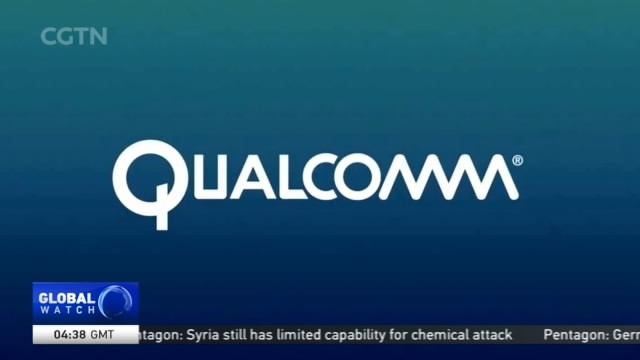
13:17, 20-Apr-2018
China-US Trade Frictions: Tensions hampering high-tech cooperation
02:35

Trade tensions between China and the US have been intensifying for a month. The US plans to impose tariffs on 60 billion US dollars' worth of Chinese imports. China says it's ready to fight back, but these tensions are affecting cooperation between the two countries in areas like technology. Take a look.
Trade tensions between China and the United States are not settling. Beijing is determined to fight back.
GAO FENG SPOKESPERSON, CHINESE COMMERCE MINISTRY "We don't want to see the escalation of a trade conflict. But as we mentioned, China is prepared for all kinds of possibilities. If the US clings obstinately to its own course, China will fight resolutely until the very end."
This round of friction escalated in late March when US President Donald Trump announced tariffs on up to 60 billion US dollars worth of Chinese imports. Washington also set barriers to curb China's high-tech development. And just earlier this week, the US Department of Commerce banned US companies from selling components to ZTE, a Chinese tech company, for seven years.
HUA CHUNYING SPOKESPERSON, CHINESE FOREIGN MINISTRY "I also noticed that the Brookings Institution said in a recent report that the China-US trade war could jeopardize up to 2.1 million jobs in 2,700 American counties. In addition, 107 US business and industry groups already sent a letter to the US House Committee on Ways and Means to oppose the imposition of tariffs on Chinese goods."
US mobile chipmaking giant Qualcomm may suffer from this ban. As one of the first companies to cooperate with Qualcomm, ZTE accounts for some six to ten percent of sales of the world's largest mobile chips manufacturer. Qualcomm reported its operating revenue of some 18 billion US dollars in 2017, with the Chinese market contributing 65 percent.
The loss of major clients is not the only challenge Qualcomm is facing. The company on Thursday said it extended the deadline for its planned merger with Dutch rival NXP, in order to work on getting clearance from Chinese regulators. At the request of China's Commerce Ministry and under its anti-dumping law, the companies have refiled a notice of acquisition. If the merger does not clear all regulatory hurdles by the deadline, Qualcomm is to pay NXP a huge termination fee.
The Chinese commerce ministry says the US has met China's request of a consultation under the WTO dispute settlement procedure. The global economy needs a free, fair and cooperative trading environment, and the world is watching to see if the frictions might end up being a real trade war.

SITEMAP
Copyright © 2018 CGTN. Beijing ICP prepared NO.16065310-3
Copyright © 2018 CGTN. Beijing ICP prepared NO.16065310-3